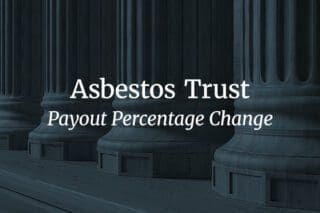Port Terminal Railroad Association (PTRA) of Harris County and Union Pacific Railroad Company are being sued by a former employee’s estate executors for his asbestos-related death.
Executors Chuck L. Harrison and Karen A. Cannon believe Leon E. Harrison had a wrongful death due to asbestos exposure dating back to 1959. After years as a railroad worker, Mr. Harrison was then diagnosed with lung cancer in 2012 and passed by 2013 at 73 years old.
Railroad workers have an unfortunate history linked to asbestos due to the fact that asbestos insulation was widely used to protect against the intense heat of steam needed to power trains. Asbestos was a favored material because it was inexpensive and extremely heat-resistant, so it was most commonly found in boilers, pipes, and fireboxes.
The entire railroad work environment was a hazard with boxcars, cabooses, gaskets, sealing cement, floor tiles, rope, brake lining, clutches, and more containing the material. It wasn’t until the 1970s that it became public knowledge as to how asbestos exposure had strong links to pulmonary disease. After that, its use on new trains ended.
This long period of time that elapses from initial asbestos exposure to diagnosis is referred to as the latency period. Lung cancer can take ten or more years to develop.
C. Harrison and Cannon filed individual lawsuits in the Houston Division of the Southern District of Texas, alleging that the PTRA and Union Pacific Railroad Co. violated the Federal Employers’ Liability Act (FELA) by allowing L. Harrison to use machinery, tools, and equipment related to asbestos exposure. Similar cases have had FELA support and found success as well.
The executors are charging the railroad companies with negligence to protect L. Harrison and are holding them responsible for failure to avoid asbestos-ridden materials, inspect equipment thoroughly, warn employees of the toxic work environment, supply respirators and medical monitoring, as well as following their own internal policies.
Pain, suffering, anguish, fear, impairment, and medical expenses are being claimed, seeking actual and special damages, pre- and post-judgment interest, and attorney’s fees, expenses, and costs.





